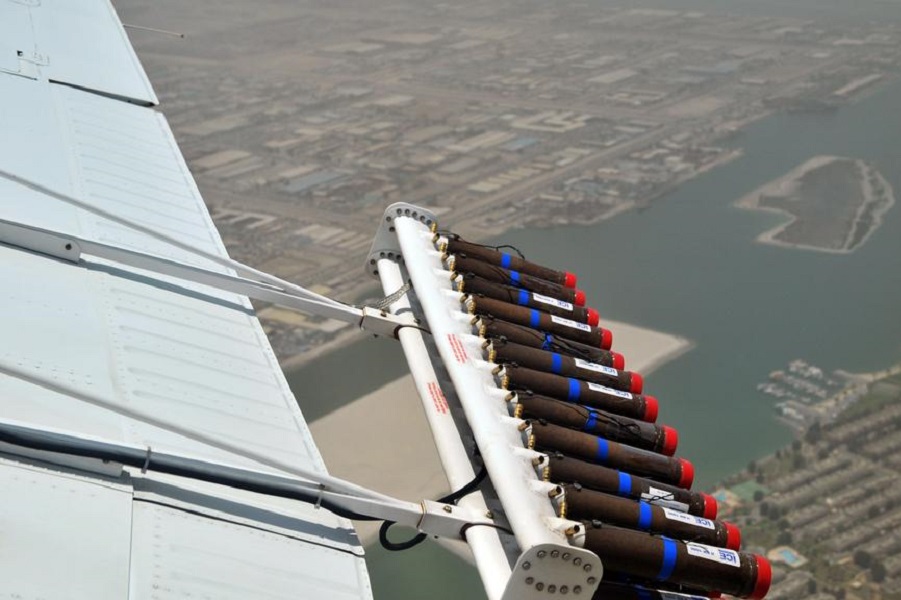Six cloud-seeding missions over UAE in past two days
By Aliheydar_Rzayev Wednesday, 10 January 2018 2:26 AM

The National -- Six cloud-seeding missions have been carried out over the country since Monday morning.
They are the first operations to take place this year, the National Centre of Meteorology confirmed to The National on Tuesday.
Half of the operations took place over the eastern and northern parts of the country such as RAK, Fujairah and east of Dubai.
The rest were performed over Abu Dhabi city and the western coastal areas of the emirate.
Rain has hit the country since Monday evening as the country remains in the grip of a winter chill.
Showers fell across the capital from the early hours of Tuesday morning, with videos posted on the NCM social media feeds showing downpours in Abu Dhabi and Dubai.
Temperatures are also plummeting. The coldest temperature recorded overnight was 3.8°C on Jebal Jais at 3.45am.
Looking ahead, a forecaster for the NCM said people could expect scattered rain across the country until Wednesday evening at least.
"Today and tonight it will be especially over the western area but extending across the country tomorrow," he said.
The forecaster also said the spell of cold weather is not unusual for this time of year, "It's an absolutely normal situation".
The UAE’s cloud-seeding planes, meanwhile, fly out of Al Ain.
Salt crystal flares are fired into the updraft of suitable clouds in the hope that it will trigger more rainfall.
The idea is that water vapour condenses around the salt, crystallises to form ice and then falls as rain.
Contrary to popular opinion, seeding planes fly throughout the year and not just at times of unstable weather.
For example, the Indian monsoons bring areas of low pressure to the eastern parts of the country in summer and seeding takes place.
Cloud seeding is not an exact science and its relationship to how much rain fell is extremely difficult to quantify.
Only natural salts and no harmful chemicals are used in the seeding operations, the NCM said.
The UAE established the Research Programme for Rain Enhancement in 2015 to look into ways to tackle water security. It offers a yearly US$5 million (Dh18m) grant to be shared by five winning scientific proposals.
The winners of this year’s grant will be announced next Wednesday as part of Abu Dhabi Sustainability Week.




























Add new comment